Telangana: Five killed as car plunges into lake in Yadadri Bhuvanagiri, probe underway

As many as five people were killed as their car plunged into a lake at Jalapur village in the Yadadri Bhuvanagiri district of Telangana on Saturday, i.e., December 7, news agency ANI reported.
Who is Khan Sir? Is he still in custody after joining BPSC aspirants’ protest in Patna? Check latest update here

Khan Sir, while speaking to the media over the ongoing protests, said that they have nothing to do with politics and would stand with those who will listen to their demands
Kerala Lottery Results December 7: Karunya KR 683 Saturday lucky draw result TODAY

Kerala lottery result December 7, 2024 Karunya lottery ticket result draw is going to be held at Gorky Bhavan, Near Bakery Junction, Palayam, Thiruvananthapuram.
Shillong Teer Result TODAY December 7, 2024 Saturday: Check 1st, 2nd-round lucky winning numbers

Shillong Teer Lottery December 7, 2024: The complete list of winning numbers from the various games offered by the Meghalaya Lottery Department is shown below. View the results for the following tests: Shillong Morning Teer, Khanapara Teer, Jowai Ladrymbai, Shillong Teer, and Shillong Night Teer.
Pete Hegseth says he had ‘substantive conversation’ with Joni Ernst as Trump signals support
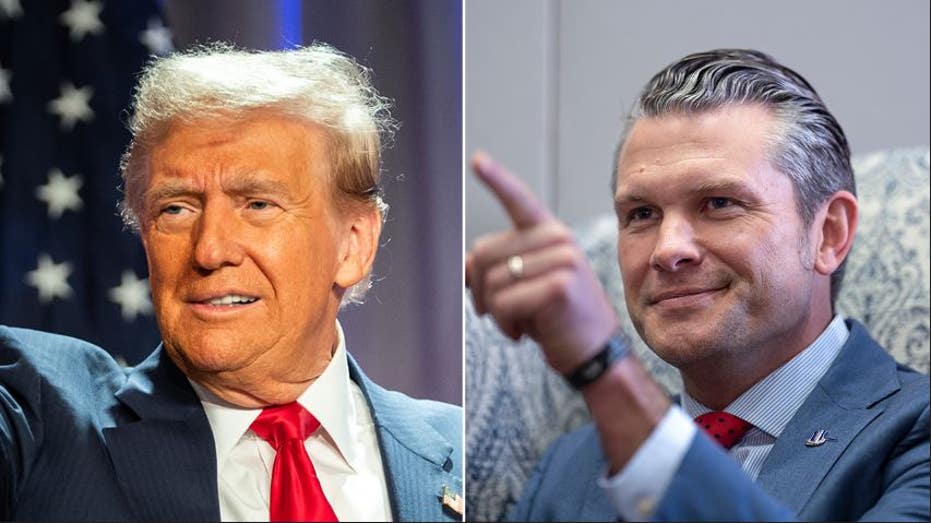
President-elect Trump expressed public support for embattled defense secretary nominee Pete Hegseth Friday, and the nominee said he had a “substantive conversation” with Sen. Joni Ernst. Hegseth, a former National Guard officer, has been meeting with Republican senators this week to rally support as allegations of sexual misconduct and excessive drinking have surfaced. He has denied any wrongdoing. Ernst has not committed to voting for Hegseth. “Looks like Pete is doing well now,” Trump told Kristen Welker on “Meet the Press” Friday. “I mean, people were a little bit concerned. He’s a young guy with a tremendous track record, actually. Went to Princeton, went to Harvard. He was a good student at both, but he loves the military. And I think people are starting to see it. So, we’ll be working on his nomination along with a lot of others.” PETE HEGSETH SAYS HE WILL BE ‘STANDING RIGHT HERE IN THIS FIGHT’ AFTER MEETING WITH SENATORS Trump confirmed he still has confidence in Hegseth. “He’s a very smart guy,” Trump said. “I’ve known him through Fox, but I’ve known him for a long time. I mean, he’s basically a military guy. I mean, every time I talk to him, all he wants to talk about is the military.” Trump said that while he didn’t have assurances from senators that his nomination would be confirmed, he believes he will get it through. “I’ve had a lot of senators calling me up saying he’s fantastic,” Trump said. Asked by Welker about the allegations of excessive drinking, Trump said, “Well, I’ve spoken to people that know him very well, and they say he does not have a drinking problem.” INCOMING WHITE HOUSE PRESS SECRETARY ADDRESSES TRUMP’S SUPPORT OF HEGSETH Trump also supported Hegseth on Truth Social on Friday, writing, “Pete Hegseth is doing very well. His support is strong and deep. He was a great student – Princeton/Harvard educated – with a Military state of mind. He will be a fantastic, high energy, Secretary of Defense, one who leads with charisma and skill. Pete is a WINNER, and there is nothing that can be done to change that.” Hegseth wrote on his X account Friday: “I just had another substantive conversation with Senator Ernst, I appreciate her sincere commitment to defense policy, and I look forward to meeting with her again next week.” Ernst also called their meeting “constructive” on her account, adding that the two plan to meet again next week. “Pete Hegseth and I will continue our constructive conversations as we move forward together in this process. We plan to meet again next week. At a minimum, we agree that he deserves the opportunity to lay out his vision for our warfighters at a fair hearing,” she said. Vice President-elect JD Vance also told reporters Friday that Hegseth has the incoming administration’s full support and won’t face a “sham hearing before the American media.” TRUMP FLOATS DESANTIS AS POTENTIAL DEFENSE SECRETARY REPLACEMENT IF HEGSETH FALTERS “Pete Hegseth is going to get his hearing before the Senate Armed Forces Committee, not a sham hearing before the American media,” Vance told reporters while in North Carolina. “We believe Pete Hegseth is the right guy to lead the Department of Defense. That’s why Trump nominated him. We’re not abandoning this nomination. CLICK HERE TO GET THE FOX NEWS APP “I fully support Pete. I think Pete’s going to get confirmed, and we are completely behind him. I have talked to Joni [Ernst]. I’ve talked to a number of my colleagues about this nomination and about other nominations. All I’m asking is people actually allow the Senate nomination process to work. We do not determine important government officials based on anonymous sourcing from the American media.”
India issues travel advisory for its citizens in Syria: ‘Leave at the…’

This warning comes in light of the situation prevailing in Syria, which poses significant risks to travellers
How China’s cyberespionage has changed
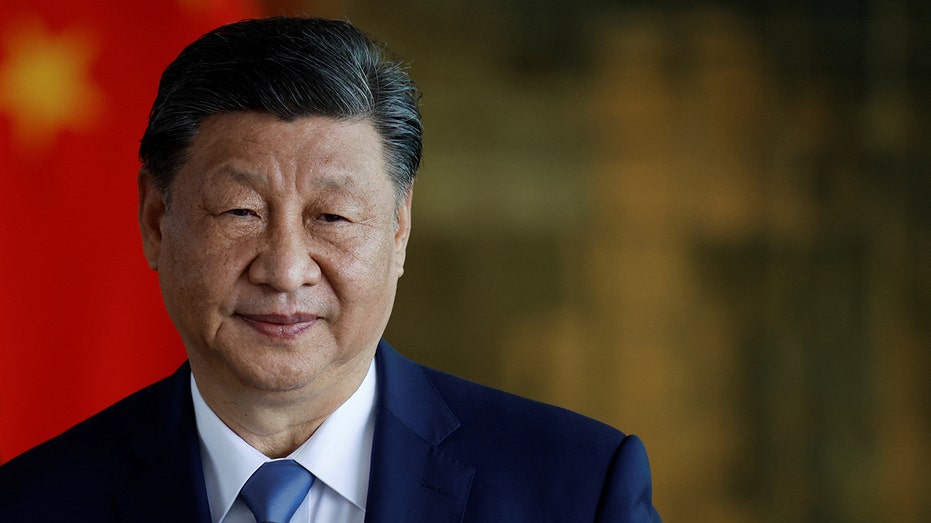
China is the most active and persistent cyberthreat to American critical infrastructure, but that threat has changed over the last two decades, the Cybersecurity and Infrastructure Security Agency (CISA) says. “I do not think it is possible to design a foolproof system, but I do not think that should be the goal. The goal should be to make it very difficult to get in,” Cris Thomas, sometimes known as Space Rogue, a member of L0pht Heavy Industries, said during testimony before the Governmental Affairs Committee May 19, 1998. L0pht Heavy Industries was part of one of the first congressional hearings on cybersecurity threats. Members of the group warned it was possible to take down the internet in 30 minutes and that it was nearly impossible to make a defense system that was 100% foolproof. It also had difficulties when it came to tracking where threats came from. FBI, CISA SAY CHINESE HACKERS BREACHED MULTIPLE US TELECOM PROVIDERS IN TARGETED ATTACK “Backtracking and reverse hacking is a relatively tricky area. Based upon the relatively antiquated protocols that you are dealing with, there is not a tremendous amount of information as to where things came from, just that they came,” said another member of the group, Peiter Zatko, who testified under his codename, “Mudge.” By the time the hearing took place, China was likely already at work. In the early 2000s, the U.S. government became aware of Chinese espionage targeting government entities. One string of operations known as Titan Rain started as early as 2003 and included hacks on the U.S. departments of State, Homeland Security and Energy. The public became aware of the attacks several years later. Around that time, the current CISA Director, Jen Easterly, was deployed to Iraq to investigate how terrorists were using new technology. “I actually started in the world of counterterrorism, and I was deployed to Iraq and saw how terrorists were using communications technologies for recruitment and radicalization and operationalizing improvised explosive devices,” Easterly said. T-MOBILE HACKED BY CHINESE CYBER ESPIONAGE IN MAJOR ATTACK ON US TELECOMS At that time the U.S. government was investing in cyberwarfare. The Bush administration had ordered studies on computer network attacks, but officials eventually expressed concern over the amount of damage those attacks could cause. Instead, the U.S. moved to a more defensive posture that focused on defending against attacks. “When I stood at the Army’s first cyber Battalion and was involved in the stand-up of U.S. Cyber Command, we were very focused on nation-state adversaries,” Easterly said. “Back then, China was really an espionage threat that we were focused on.” Threats from China would eventually intensify. According to the Council on Foreign Relations’ cyber operations tracker, in the early 2000s, China’s cyber campaigns mostly focused on spying on government agencies. “Officials have rated China’s aggressive and wide-ranging espionage as the leading threat to U.S. technology,” Sen. Kit Bond, R-Mo., warned in 2007. By then, China had a history of spying on U.S. innovation and using it to replicate its own infrastructure. In 2009, Chinese hackers were suspected of stealing information from Lockheed Martin’s Joint Strike Fighter Program. Over the years, China has debuted fighter jets that look and operate like U.S. planes. CHINESE HACKERS OUTNUMBER FBI CYBER PERSONNEL ‘BY AT LEAST 50 TO 1,’ WRAY TESTIFIES “China is the preeminent threat to the U.S.,” Easterly said. “We are laser-focused on doing everything we can to identify Chinese activity, to eradicate it and to make sure we can defend our critical infrastructure from Chinese cyber actors.” In 2010, China shifted its targets to the public sector and began targeting telecommunications companies. Operation Aurora was a series of cyberattacks in which actors conducted phishing campaigns and compromised the networks of companies like Yahoo, Morgan Stanley, Google and dozens more. Google left China after the hacks and has yet to return its operations to the country. By the turn of a new decade, evidence showed China was also spying on critical infrastructure in the U.S. and abroad. “Now we are looking at them as a threat to do disruptive and destructive operations here in the U.S. That is really an evolution that, frankly, I was not tracking and was pretty surprised when we saw this campaign,” Easterly said. The Council on Foreign Relations Cyber Operation Tracker reveals China has frequently targeted trade operations and military operations in the South China Sea, and one of its favorite targets in the past decade has been Taiwan. “We have seen these actors burrowing deep into our critical infrastructure,” Easterly said. “It’s not for espionage, it’s not for data theft. It’s specifically so that they can launch disruptive or destructive attacks in the event of a crisis in the Taiwan Strait.” Taiwan is the world’s largest producer of semiconductors, and data shows how China has spied on all companies involved in all parts of that supply chain from mining to semiconductor producers. “A war in Asia could have very real impacts on the lives of Americans. You could see pipelines blowing up, trains getting derailed, water getting polluted. It really is part of China’s plan to ensure they can incite societal panic and deter our ability to marshal military might and citizen will. This is the most serious threat that I have seen in my career,” Easterly said. China’s public and private sector are closely intertwined by regulation, unlike in the U.S., where partnerships are key for defense. “At the end of the day, it is a team sport. We work very closely with our intelligence community and our military partners at U.S. Cyber Command. And we have to work together to ensure that we are leveraging the full tools across the U.S. government and, of course, working with our private sector partners,” Easterly said. “They own the vast majority of our critical infrastructure. They are on the front lines of it. And, so, ensuring that we have very robust operational collaboration with the private sector is critical to our success in ensuring the
‘Take a seat’: Obama ripped for being on ‘high horse’ during first post-election speech
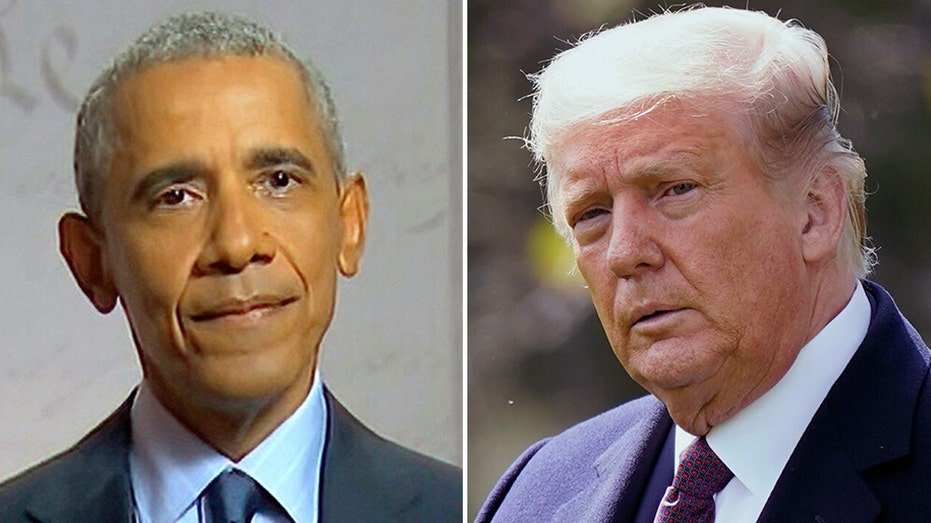
Conservatives on social media blasted former President Obama after his first speech since the presidential election in which he lamented polarization in politics. During a speech Thursday at the Obama Foundation’s Democracy Forum, Obama made the case that if “one side” attempts to cement “a permanent grip on power” through “suppressing votes,” “politicizing” the military or weaponizing the judiciary and criminal justice system to target opponents, “a line has been crossed.” “Pluralism is not about holding hands and singing ‘Kumbaya,’” Obama said. “It is not about abandoning your convictions and folding when things get tough. It is about recognizing that, in a democracy, power comes from forging alliances and building coalitions and making room in those coalitions not only for the woke, but the waking. “Purity tests are not a recipe for long-term success.” ‘DEPORTER-IN-CHIEF’ OBAMA SURPASSED DEPORTATIONS UNDER TRUMP’S FIRST TERM Obama’s speech quickly drew strong criticism from conservatives. “It’s over for Obama,” journalist Miranda Devine posted on X. “The spell is broken. Donald Trump vanquished him, Biden, Harris, the Bushes, the Cheneys. All of them, with a spring in his step.” “Ever since his last minute desperate smear of Trump with the ‘very fine people on both sides’ lie, Barack Obama has been slowing realizing his status as false prophet of the Democrat party is no more,” conservative radio host Buck Sexton posted on X. EAGLES’ JALEN HURTS WOULDN’T GOLF WITH OBAMA AND MADE A DISPUTED EXCUSE WHY: ‘HE DIDN’T WANT THESE PROBLEMS’ “Obama turned our politics into ‘if you disagree with me, you are a bad person,’” Republican communicator Matt Whitlock posted on X. “Few people did more to pave the way for Trump. So he can take a seat.” “By voting in a democratic election, millions of people proved they hate democracy,” author Jon Gabriel posted on X. “Yes, this Obama fellow is quite the intellect.” “Setting aside the unbelievable hypocrisy here, this is also the guy who’s launching a project to lessen our political divisions. Being the problem — way up on his high horse, looking down disappointedly at the unwashed masses — while publicly lamenting the problem is peak Obama,” Fox News contributor Guy Benson posted on X. Obama, in his remarks, insisted he is “convinced that if we want democracy as we understand it to survive,” people must work for a renewed dedication to pluralist principles. “Because the alternative is what we’ve seen here in the United States and in many democracies around the globe. Not just more gridlock. Not just public cynicism. But an increasing willingness” among “politicians and their followers to violate democratic norms. To do anything they can to get their way. To use the power of the state to target critics and journalists and political rivals and to even resort to violence” to obtain and retain power. Fox News Digital’s Alex Nitberg contributed to this report
‘Far-left radical’: Progressive House Dems elect police defunding proponent despite calls to moderate
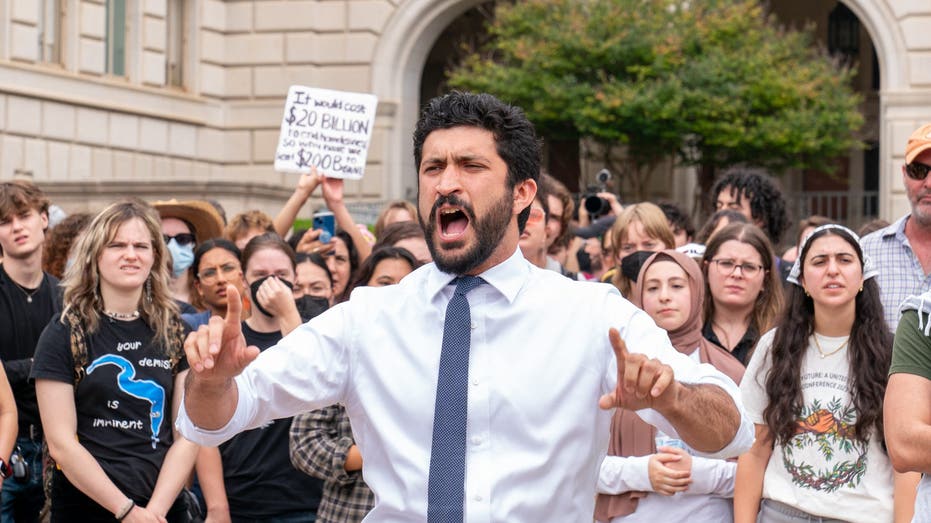
Texas Democratic Rep. Greg Casar, the newly elected chair of the Congressional Progressive Caucus, spent years as a City Council member in Austin and led the charge to strip funding from local law enforcement — at one point bragging about it on social media. “We did it!!” Casar wrote on X after legislation he drafted in the Austin City Council passed, resulting in a more than $100 million cut in local police funding and an end to three incoming cadet classes. The measure passed unanimously in 2020 after a stint of police shootings involving people of color. Casar on Thursday was elevated to the highest-ranking leadership position for progressives in the House of Representatives, following a unanimous vote from his peers in the caucus. The move comes as Democrats continue to conduct a forensic analysis following the election, many of whom have called on the party to take a more centrist approach in the future. Casar’s history as a public official, particularly at the local level, does not illustrate moderation, according to Dennis Farris, president of the Austin Police Retired Officers Association. “‘Far-left radical’ is a really good way to describe what he did in [Austin],” said Farris. EVEN DEMOCRATIC VOTERS REJECTED LEFTIST POLICIES AND POLITICIANS IN THE MOST SURPRISING PLACES In 2017, Casar led a charge to reject a mutually agreed upon contract between the City of Austin and the Austin Police Association, setting off a wave of retirements and hiring issues due to the uncertainty around job security and benefits for officers. Meanwhile, in 2020, Casar led the drafting of legislation to strip more than $100 million in funding to the police department, which included the elimination of funding from three planned police cadet classes. Instead, the reallocated funds went to programs related to abortion access, affordable housing and food security. Shortly thereafter, the City of Austin began redirecting certain 911 calls to mental health professionals. Additionally, last year, a shortage of officers compelled police in Austin to ask residents to dial 311, instead of 911, if they got robbed near an ATM. BLUE STATE MAKES $350M ‘DEFUND POLICE’ COMEBACK AFTER RECORD HOMICIDES, VIOLENT GANG TAKEOVERS During his time as a City Council member in Austin, Casar also authored two “Freedom City” resolutions, which eliminated the use of discretionary arrests for certain non-violent crimes and required police to inform people that they are legally allowed to deny requests for immigration papers. Other policies Casar supported in his position as City Council member included a ban on non-lethal police munitions and certain chokeholds. As a member of Congress, Casar has continued putting pressure on Austin’s police officers, as well. Last year, he called on the Department of Justice to conduct oversight into “the Department’s policies and practices of excessive and lethal use of force, racial discrimination, and discrimination against people with mental health conditions.” JORDAN PETERSON SAYS TRUMP’S ELECTION WAS BLOW TO WOKEISM: REJECTION OF ‘HEDONISTIC, POWER MAD PROGRESSIVES’ “There was a thought in 2020 that the Democrats were actually going to flip the Texas House, and Casar was used in several campaign ads by Republicans all over the state. Democrat friends of mine thought the ‘defund the police movement’ was the reason that Democrats didn’t win,” Farris said. “I’ve spoken to several Democratic friends of mine, and they will tell you that [Casar] was a hindrance to the state-level Democrats in 2020.” Following last month’s elections, progressive Sen. Bernie Sanders, I-Vt., was among a score of Democratic lawmakers who argued the party has lost its centrist, working-class base. SANDERS DOUBLES DOWN ON HIS CRITICISM OF DEMOCRATS, FIRES BACK AT PELOSI’S PUSHBACK “There is more to lose than there is to gain politically from pandering to a far left that is more representative of Twitter, Twitch, and TikTok than it is of the real world,” Rep. Ritchie Torres, D-N.Y., said following the election. “The working class is not buying the ivory-towered nonsense that the far left is selling.” Meanwhile, on Thursday, the same day as Casar’s caucus election victory, NBC News published a story about the sophomore congressman in which he echoed much of the analysis from other Democrats that an intra-party shift is necessary. “We are now at a place where we have to put winning way above being right all the time,” he told the outlet. “It’s less of a left-right fight and more of a getting back to a Democratic Party that’s for everyday people, no longer being seen as preachy or disconnected.” Nonetheless, during a press conference following his victory, Casar said, “If the Democratic Party was a little more like Chairwoman [Washington Rep. Pramila] Jayapal and a little less like [West Virginia Sen.] Joe Manchin, I think we would have won this election.” Jayapal is the outgoing chair of the Congressional Progressive Caucus and has similarly led efforts to defund the police. Fox News Digital reached out to Casar’s office for comment but did not hear back in time for publication.
Here’s how Trump plans to install longtime ally Kash Patel as FBI director
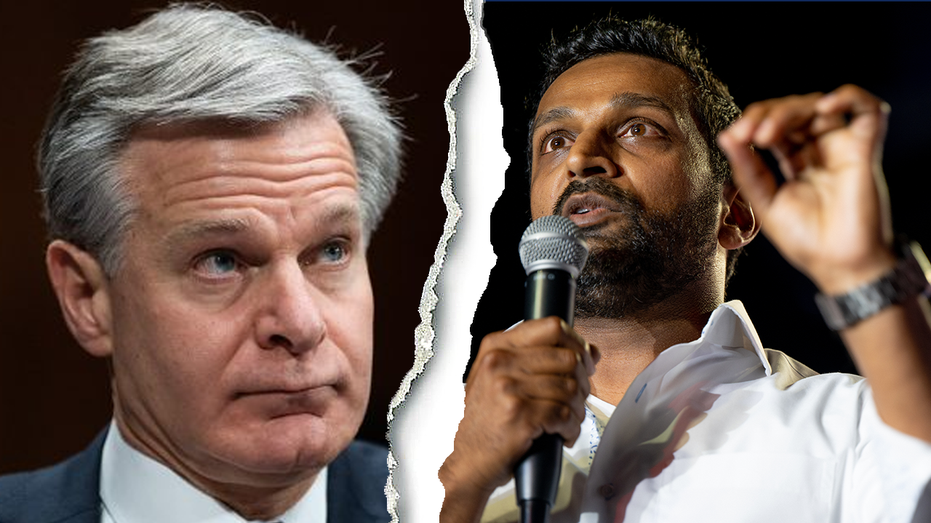
President-elect Trump announced last week that he intends to nominate former White House aide and longtime ally Kash Patel to serve as FBI director, potentially making him the only U.S. president to have fired and installed two separate FBI directors in the middle of their 10-year terms. “Kash is a brilliant lawyer, investigator, and ‘America First’ fighter who has spent his career exposing corruption, defending Justice, and protecting the American People,” Trump said in a social media post announcing his intent to nominate Patel for FBI director. “He played a pivotal role in uncovering the Russia, Russia, Russia Hoax, standing as an advocate for truth, accountability, and the Constitution.” Patel is a close ally of the president-elect and served in the first Trump administration both as a deputy assistant and as the senior director for counterterrorism. He was endorsed on Friday by the National Police Association, which praised Patel’s record of “transparency” and “accountability” that it said makes him well-positioned to head up the nation’s sprawling law enforcement agency. KASH PATEL: MILLEY, BIDEN ADMIN ‘PEDDLING FALSE FACTS’ ON CHINA PHONE-CALL CONTROVERSY Still, news of Trump’s plans to nominate Patel was met with criticism — if not shock — from others in the law enforcement community. That’s because replacing a sitting FBI director is a controversial move that breaks with the express purpose of the role, which, under post-Watergate laws, mandated that directors are nominated for 10-year terms: an express length of time designed to allow the directors — at least in theory — to operate outside political pressure or interference from a sitting president. Trump sent shock waves through the law enforcement community in 2017 when he fired then-FBI Director James Comey, who at the time was less than four years into his 10-year term. Trump also personally selected current FBI Director Christopher Wray — whom he praised at the time as a “fierce guardian of the law and model of integrity” — to replace him. For Trump to install Patel as FBI director, two things must happen: Wray must exit the job, and Patel must earn Senate confirmation. How Wray will leave remains unclear. He could opt to voluntarily vacate the position on his own before Trump’s inauguration, though he has not yet said whether he plans to do so. If Wray does not voluntarily vacate his position, Trump could be the only president in U.S. history to have fired and installed two separate FBI directors. TRUMP TRANSITION SIGNS AGREEMENT FOR FBI BACKGROUND CHECKS Patel must also be confirmed by the Senate, though it is likely that the Republican-led chamber will move to approve him for the role. Patel’s nomination has sparked early criticism from some Democrats ahead of his confirmation hearing, who have cited his previous vows to prosecute journalists and career officials at the Justice Department and FBI that he sees as being part of the “deep state.” He has since attempted to clarify some of those remarks. Only one other FBI director has been fired in U.S. history: William Sessions, a Reagan appointee who was widely disliked both for being an ineffective leader and for using his post to commandeer limousines and private government flights for personal business, among other things.

